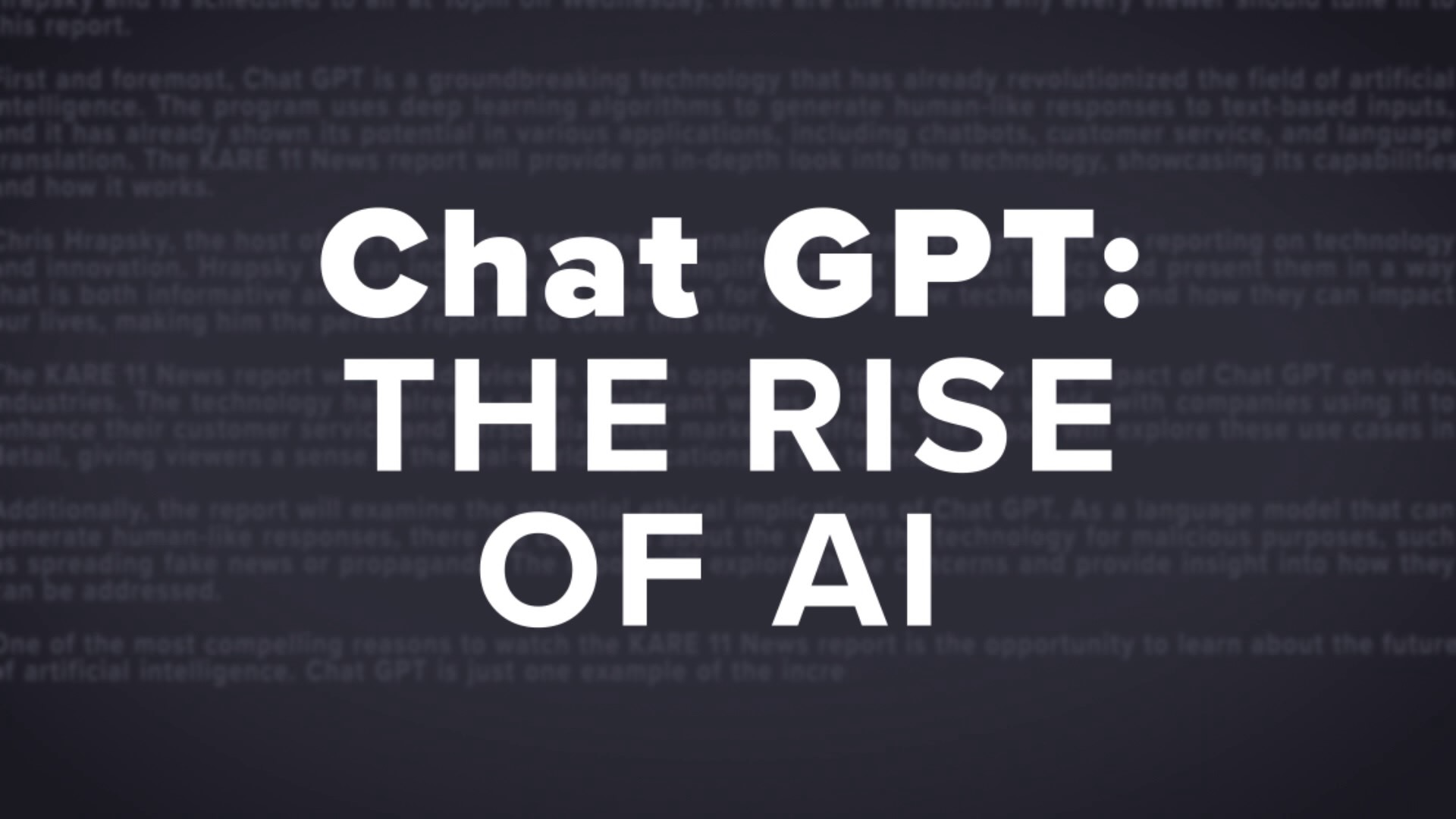NASHVILLE, Tenn. — Vanderbilt University is drawing heat from its own student body for using ChatGPT to generate a community-wide letter addressing a mass shooting at Michigan State University.
The office of Equity, Diversity and Inclusion (EDI) at Vanderbilt's Peabody College of Education last week issued a message that struck many as impersonal and lacking empathy.
"The recent Michigan shootings are a tragic reminder of the importance of taking care of each other, particularly in the context of creating inclusive environments," its opening line read. "As members of the Peabody campus community, we must reflect on the impact of such an event and take steps to ensure that we are doing our best to create a safe and inclusive environment for all."
Another paragraph began with an opening sentence that struck community members as generic.
"Another important aspect of creating an inclusive environment is to promote a culture of respect and understanding," it read." This means valuing the diversity of experiences, perspectives, and identities on our campus, and actively working to create a space where everyone feels welcomed and supported."
It continued to tout the merits of creating "a safe and inclusive environment on campus."
In small font, just above the signature line, a disclaimer appeared, indicating that the letter had been paraphrased from OpenAI's ChatGPT AI language model.
"Stick and twisted"
Students and community members blasted the university for the misstep, accusing administrators of orchestrating a public relations stunt.
Vanderbilt senior Laith Kayat, whose sister attends MSU, called the use of ChatGPT "disgusting," Vanderbilt's student newspaper, the Vanderbilt Hustler, reported.
"There is a sick and twisted irony to making a computer write your message about community and togetherness because you can't be bothered to reflect on it yourself," Kayat told The Hustler. "[Administrators] only care about perception and their institutional politics of saving face."
Kayat called on university administrators to do better than relying on a robot to lead the school.
Administrators never reviewed letter
On Friday, a day after the initial memo was issued, Nicole M. Joseph, associate dean for EDI, sent a follow-up email saying her office had made an error in judgement by using ChatGPT to reflect on the MSU shooting.
"As with all new technologies that affect higher education, this moment gives us all an opportunity to reflect on what we know and what we still must learn about AI," Joseph's follow-up letter read, according to the Vanderbilt Hustler.
Peabody College Dean Camilla Benbow said the controversial missive was never reviewed by her office before it was distributed.
"The development and distribution of the initial email did not follow Peabody's normal processes providing for multiple layers of review before being sent," she said in a statement to CBS MoneyWatch.
The dean's office is conducting an investigation into the incident. In the meantime, Associate Dean Joseph and Assistant Dean Hasina Mohyuddin will be on temporary leave, Benbow said.
"I am also deeply troubled that a communication from my administration so missed the crucial need for personal connection and empathy during a time of tragedy," she added in her statement.
Poor judgment
There are scenarios in which ChatGPT can be highly effective at drafting communications. Some chief executives have come to rely on it to write speeches and act as a "thought partner". Debates are underway about the kinds of jobs the technology will eventually eliminate.
But for now, it lacks a core feature that makes humans unique: judgment.
ChatGPT can summarize data and generate text, but doesn't possess the emotional intelligence of humans, according to Columbia Business School professor Oded Netzer. Understanding the "why" behind facts and figures and expressing genuine emotion are still "the types of tasks that require judgment and that humans are still very valuable in," he said.

